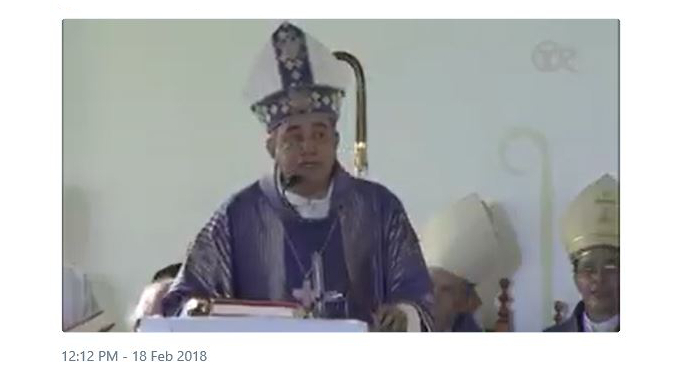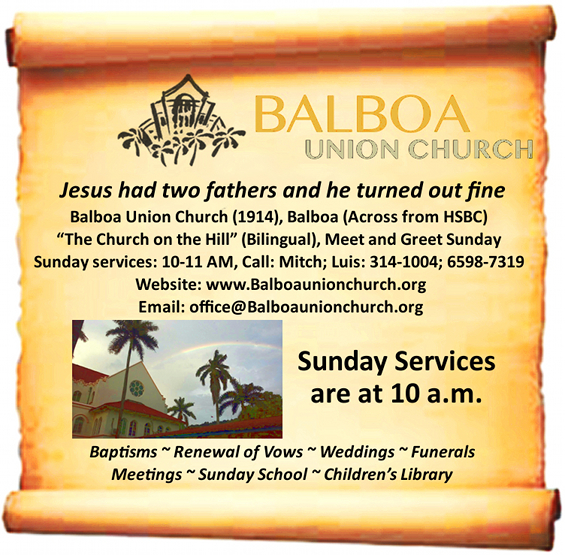
Is homosexuality a foreign ideology that’s imposed upon Panama?
by Eric Jackson
The battle is joined in earnest about same-sex marriages. A January 9 decision by the Inter-American Human Rights Court condemned Costa Rica’s ban on same-sex marriages and that ruling slides on a scale from persuasive to mandatory across most of Latin America. Immediately in Costa Rica, it vaulted an also-running Evangelical preacher from far back in the pack into first place in that country’s first round of presidential voting, albeit with only one-quarter of the vote. It also led to a curious demonstration in Washington by a US-led umbrella group of Latin America’s Christian religious right — including Catholic and Evangelical groups from Panama — urging Americans to stand up for US national sovereignty that’s being trampled by that regional court that sits in San Jose, Costa Rica. (Never mind that before the inter-American ruling the US Supreme Court had legalized same-sex marriages in 2015, and ignore the fact the the United States has never accepted the jurisdiction of the Inter-American Human Rights Court, if you want to believe that argument.)
Panama, however, is at least paying attention to what the regional court said. A series of lawsuits before Panama’s Supreme Court of Justice assert that the provision of the Family Code that limits marriages to those between a man and a woman violates this country’s constitution, but the magistrate who was designated to draft an opinion, Luis Ramón Fábrega, circulated a proposeed ruling denying those claims. In the wake of the regional court’s decision, however, he withdrew that draft. Perhaps the eventual ruling will be against marriage equality, with a section making an argument about why the inter-American ruling should not apply to Panama. At least the Panamanian high court will not pretend that the regional ruling never happened.
The drama is mobilizing people on both sides of the question. As could be expected, the archbishop of Panama, Monsignor José Domingo Ulloa, in keeping with Vatican doctrine a long-time critic of same-sex marriages, used one of the country’s main religious events, the homily at services for the first Sunday of Lent at the Basilica Menor in Atalaya, to press the case from his side.
“We know that the great attack of the family comes from the gender ideology. We will always defend the natural family and the family according to the project of God,” Ulloa said. “We are not going to accept that foreign organisms can come to impose upon us and upset our morals and our customs that our parents have bequeathed to us.”
So there you have it: the anti-foreign card from a prominent representative of an organization whose headquarters is on another continent, in the Vatican. The undertone of a lot of anti-gay agitation has long been that gay rights in particular and homosexuality in general are decadent US cultural phenomena that some would import to Panama. That the cases before the high court involve Panamanians who were married in other jurisdictions is a point that isn’t lost on the opponents of same-sex marriages but the foreigner-baiting has long preceded that.
In Panama’s Pride marches there have generally been contingents specifically identifiable as foreign, either expatriates or from foreign diplomatic missions. The United States, Canada and the United Kingdom have been particularly prominent. But also in those parades one finds many dual citizens, particularly those who are both Panamanian and US nationals, who are very open about being gay, lesbian, bisexual or transgendered but highly secretive about being Americans or holders of other non-Panamanian passports. The relatively recent upsurge of xenophobia, directed most of all against Venezuelans but against foreigners and ethnic Panamanians perceived to be foreigners in general, probably enhances this “closeted dual citizen” phenomenon.
A part of Ulloa’s and the religious right’s argument also cites “gender ideology,” a supposed foreign movement being imported into Panama. But the term “gender ideology” is a religious right caricature of a broad and diverse group of people and ideas that they oppose. The concept it itself an import to Panama. There actually is no “gender ideology” movement anywhere. Nobody in Panama other than the religious right uses that term. It’s just a phrase used to paint everything from family planning and workplace equality for women to legalized abortion and gay people having rights as sinister conspiracies from abroad.












